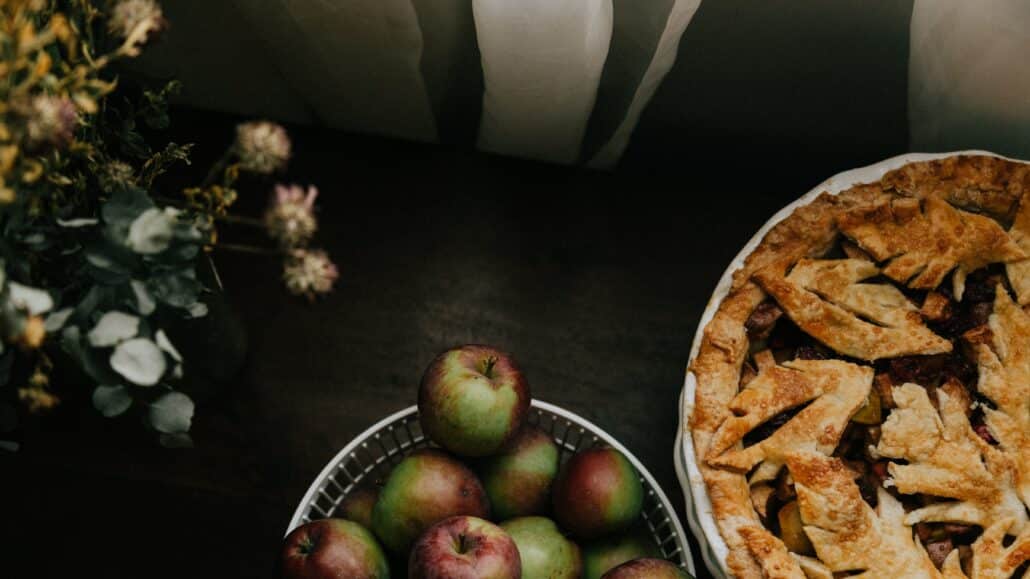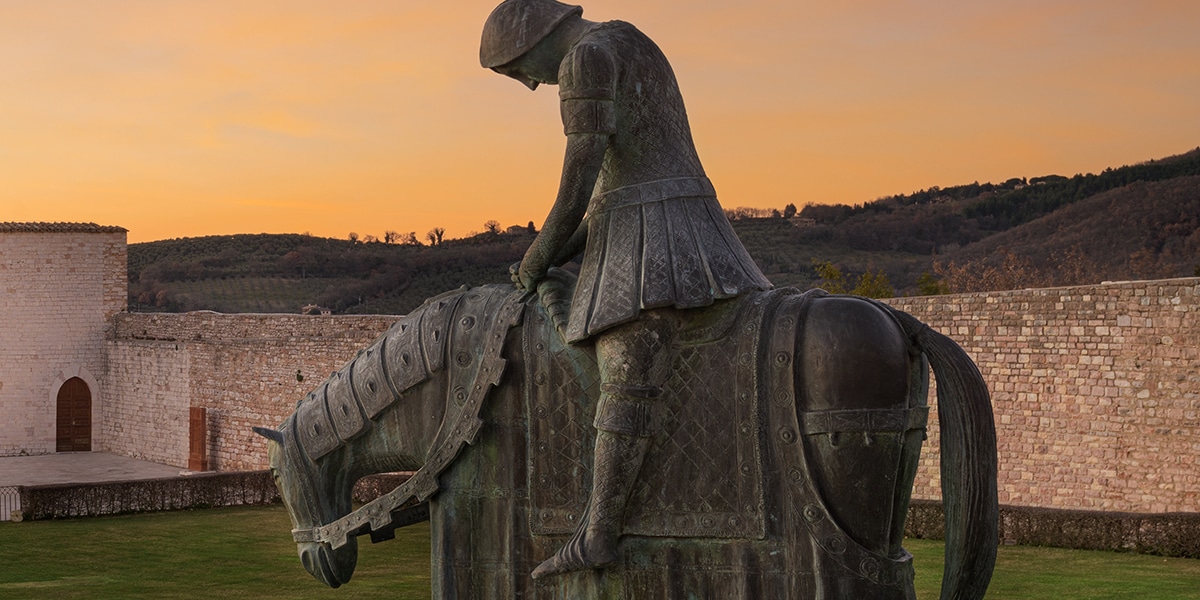Often when asked to name a special family time, people’s responses cluster around meals: Christmas dinner, birthday parties, a vacation cookout by the shore, a wedding banquet. Their intuition is sound: these special times are also sacred times. What better day to celebrate that connection than Thanksgiving? It’s a holiday designed for thanks and feasting (though turkey and football have become a cultural accretion).
The first pilgrims who celebrated it were simply glad they had survived a precarious ocean crossing in 1620 and had harvested enough corn to carry them through winter. They were grateful—not for a blissful, pain-free experience—but for the presence of God in whatever circumstance they met.
The Biblical Background
While atheists and agnostics celebrate Thanksgiving, people with religious ties are more likely to do so. A close connection between food and thanks is as old as the Book of Wisdom: “That your sons whom you loved might learn, O Lord, that it is not the various kinds of fruits that nourish man, but it is your word that preserves those who believe you!” (16:26).
Meals and gratitude are interwoven throughout the Hebrew and Christian Scriptures. Apparently, meals were so important to Jesus that his critics accused him of being a glutton and a drunkard. When he wanted to define himself in terms of abundance, he told a hungry people who wanted the manna their ancestors had eaten: “I am the bread of life; whoever comes to me will never hunger, and whoever believes in me will never thirst” (Jn 6:35).
When Jesus multiplied the loaves and fishes, he first gave thanks (Jn 6:11). He followed the practice of his Jewish ancestors at the Passover meal when he gave thanks for bread before breaking it and for wine before drinking it. For him, eating and thanking were intertwined activities.
When Jesus’ disciples thought he was a ghost, he asked for something to eat, and they gave him baked fish (Lk 24:42–43). Because he knew the sacred context for eating, he might be saddened by how thoughtlessly we drive through and chow down.
After Paul’s startling discovery on the road to Damascus that he’d been persecuting the wrong people, Acts records his healing, baptism, and a key detail: “When he had eaten, he recovered his strength” (9:19). He then poured energy into converting most of the known world. Who cooked that meal? And what was on the menu?
Thanks in Unlikely Places
Some may feel that they don’t have a lot on their list for which to be thankful. But, as Paul told the Thessalonians, “In all circumstances give thanks” (1 Thes 5:18). No matter how desperate a situation may seem, there’s always room in it for thanks—or a scavenger hunt to find something good there. Here are a few examples from worse times and places than ours:
In the Letter to the Philippians, “joy” and “rejoice” appear 16 times, despite the fact Paul wrote from prison, awaiting a trial that could have led to his death.
Corrie ten Boom, author of The Hiding Place and a survivor of a Nazi concentration camp, was grateful for the fleas, because their presence meant the German guards would leave prisoners alone.
“Gratitude changes the pangs of memory into grateful joy,” wrote Dietrich Bonhoeffer, who remained grateful even until his execution by Nazis, despite having to tell his fiancée goodbye.
Those who survived the terrible tragedy of 9/11 in New York City and Washington, DC, were more resilient and less prone to depression if they could somehow find gratitude in the ruins. While a mixture of positive and negative feelings is natural, it’s heartening to read of remarkable relief despite terrible circumstances.
One who was in the World Trade Center that morning said, “Each day that I stay as a guest on this green earth suddenly seems like outrageous good fortune.”
Practical Steps
So how does a busy family fit shared meals into a packed schedule? Most families can spin out a litany of reasons why they can’t eat together: soccer games, meetings, choir practice, travel, or work. But forgive the pun: table the excuses. They all seem pretty flimsy when held up against the studies done by the National Center on Addiction and Substance Abuse.
Its surveys found that the more often a family has dinner together, the less likely their teen is to smoke, drink, or use drugs. Each time the family dines together reduces the risk of children’s substance abuse. Nothing in the report suggests it must be a five-course meal—macaroni and cheese is fine. What matters is telling the stories, chewing over the day, being nurtured together.
Can gratitude be incorporated into a tight calendar, too? Many reasons to do so come from Robert Emmons. His book—Thanks! How the New Science of Gratitude Can Make You Happier—says multiple clinical studies have proven that a regular practice of gratitude can elevate what psychologists call the “set point” of happiness. Though a devastating spinal cord injury can dramatically decrease happiness, and winning the lottery may increase it, most people over the subsequent six months will adapt and return to the “set point.”
Grateful thinking helps people extract the most possible enjoyment from their circumstances. It prevents adaptation (returning to the “set point”) and improves mood because people don’t take blessings for granted. To receive these benefits, giving thanks beyond one day in November must become a deliberate habit.
Thus, Emmons recommends a regular practice, such as keeping a gratitude journal, naming the three best things that happen each day, or visiting someone we appreciate. A family can do this together, drawing or writing blessings on a big piece of newsprint hung jauntily on the refrigerator.
Or make placemats from paper. In the center write “thanks” and then surround the word with drawings or names of gifts: my dog, music, naps, hot soup. (Laminate, so they’ll last a while.) These practices can cascade throughout the month, becoming an avalanche of thanks by the feast itself. Seeing so many blessings, most people would want to continue every month.
Bon appétit!








